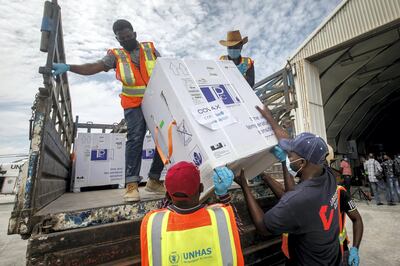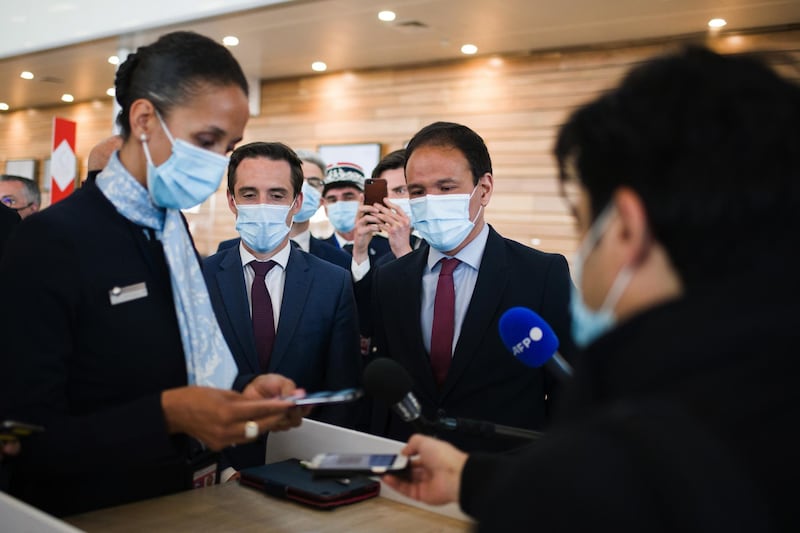The prospect of vaccine passports or certifications in order to be allowed to travel is gathering pace in the West as vaccinations become more widespread in North America and parts of western Europe.
This week, Canadian Health Minister Patty Hajdu said the government was in favour of vaccine passports and would probably seek to adapt an existing safe travel app to allow prospective vacationers to go on holidays if they have been vaccinated. I'm particularly excited about this because I should be able to finally book my vaccine appointment when Montreal, where I live, opens the door for appointments for the general population on Friday.
Similar measures are likely to be introduced elsewhere – the EU has said it will introduce digital certificates that certify that a person has been vaccinated, received a recent negative Covid-19 test result, or recovered from the disease, with the aim of making check-in procedures and verification of health measures easier at airports. The US is divided on the question of vaccine passports because it is the US and everything has to be a political statement and be polarised.
Countries are scrambling to have these measures in place ahead of the summer tourism season, hoping to revive their economies in time to revel in the wanderlust and hunger for novelty after a year of lockdowns, fear, and asceticism.
Vaccine passports are a sensible public health measure, of course, and surveys generally find widespread support for their adoption. I personally don't think they go far enough, and believe vaccine passports or certificates ought to be required for most activities that bring you in close contact with a lot of people. Imposing such restrictions will resolve the problems of vaccine hesitancy by making it untenable for people to avoid them in the long run. This will allow countries to overcome the challenge of achieving herd immunity more quickly, and allow us to get back to normal as soon as possible, and to finally take off these masks.
The problem with this approach, however, is that it risks entrenching global inequality because not all countries have equal access to coronavirus vaccines. Wealthier countries such as the US and Canada and other G20 nations secured an outsized proportion of the global vaccine supply because they could afford to pay extravagantly for pre-orders such that they would be at the front of the line, and have the cold chain supply and manufacturing capabilities to obtain and store them. Poorer countries have to rely either on vaccines without the same proven efficacy or on international procurement and distribution mechanisms like the UN-backed Covax initiative, which will take a long time to vaccinate people around the world sufficiently for herd immunity to be achieved.
This will, of course, limit the ability of talented people who want to travel or emigrate to the West from doing so in the medium term. The way out of this conundrum is for wealthier countries to invest more heavily in vaccine distribution through Covax and other initiatives. This is not only the right thing to do, but it is also the practical, wise thing to do, because global herd immunity is what will ultimately defeat the pandemic. No country is safe until all countries are safe.

None of these complex factors are what first came to my mind though when I was contemplating the news. Rather, the first thing I thought of was that vaccine passports were going to be yet another hoop for most Arabs to jump through when applying for unlikely visas to the West.
I am lucky that I managed to be able to emigrate to Canada on account of being sponsored by my wife, who was a permanent resident. Even then my first visa application got rejected. I was once rejected for a British visa despite working for the UK newspaper The Guardian. As an Egyptian, I missed out on plenty of reporting assignments because I could not obtain visas on time, and when I did I was often questioned in airports whenever I travelled. When my wife and I tried to apply for visas to the EU for our honeymoon, the clerk at the application centre essentially told us not to bother. We found a destination that didn't require a visa. And I'm one of the lucky ones.
As a reporter, I covered stories of families that had been kept apart because of visa restrictions and heard countless stories of rejection, an often humiliating experience because you essentially gather every errant piece of paperwork from your life for a chance at the promised land and are even then usually found wanting.
When talking to a friend about the vaccination rule, it occurred to me that at least those failed visa applications will have one benefit – more people will get vaccinated in pursuit of visas that in all likelihood will never happen. Maybe, inadvertently, the new rules will be precisely what is needed to overcome vaccine hesitancy and conspiracy theories in our part of the world, even if it is in pursuit of a futile goal.
Kareem Shaheen is a veteran Middle East correspondent in Canada and a columnist for The National






